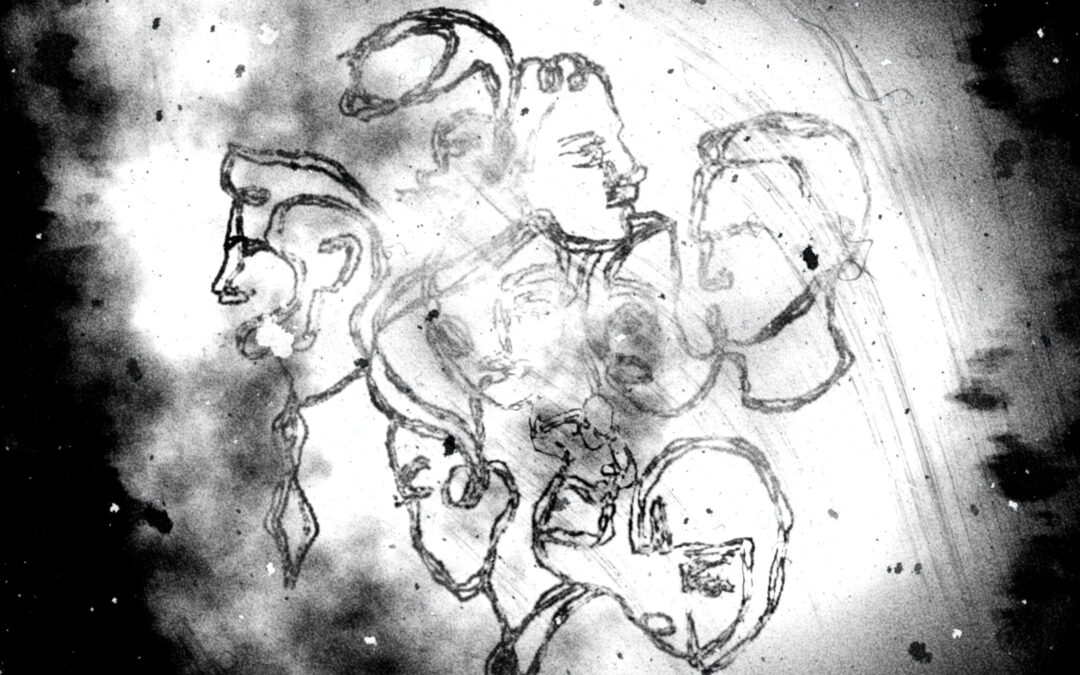Why are we doing ethnography?
‘In the context of such enormous structural violence, how was it possible to imagine that a beautiful life is possible? Even more unthinkable was the idea that one might create it, not in the future, but now.’ Saidiya Hartman in conversation with Rizvana Bradley, 2019
Lately, I’ve been thinking a lot about Saidiya Hartman’s exquisite and hopeful words, which I first came across in Christina Sharpe’s breathtakingly beautiful Ordinary Notes. I’ve been thinking about Hartman’s words in relation to the subject matter of Shadows: the lives of families and young people facing the compounding cruelty of overlapping migration and welfare policies. With much of the important literature on the no recourse to public funds (NRPF) policy revealing the real and material consequences of excluding people from welfare support, what I hope Shadows can add is an ethnographic documentation and exploration of people’s multi-layered realities, rhythms, desires, improvisations and practices of possibilities, because and in spite of having NRPF.
In Welfare statecraft and the reproduction of migrant destitution, Rachel analyses how well-meaning activism and charity/nonprofit advocacy in support of families with NRPF has become entangled in the state’s language of destitution, inadvertently reinforcing distinctions between people who are constructed as ‘deserving’ and ‘undeserving’ of social support. Even when it’s well-meaning, such entanglements risk extending the logics of welfare bordering and ‘shrinks potentials of social solidarity’ (Rosen, 2022). There is an urgent need, therefore, to be more attentive to the state’s divisive tactics, the ways in which they creep into well-meaning activism and charity/nonprofit advocacy and the pervasiveness of everyday bordering practices, and to commit to struggling for the dismantling of means-testing and bordered thinking that excludes people from social support on the basis of (un)deservingness, immigration status or anything else. I think ethnography can help us with this task.
In Is it possible to be ethnographic and decolonial, whilst continuing to challenge and reflect on the role of ethnography in the colonial project, I wrote about how I hoped that an anti-colonial ethnography could act as a potent instrument in helping us learn, think, dream and produce ideas and knowledge about justice and liberation collectively, and in doing so help cultivate a deeper solidarity and co-strugglership between people who are and who are not subject to NRPF/immigration control. Here, I want to expand on why and how ethnography can help us with this.
To recap, Raymond Madden defines ethnography as:
“a qualitative social science practice that seeks to understand human groups (or societies, or cultures, or institutions) by having the researcher in the same social space as the participants in the study” (Madden 2019, p.16).
Ethnography is therefore an immersive and intimate method of research that does not make strict demarcations between the researcher and the subject(s) of the research, making it possible for the researcher to take on the dual role of observer-participant. The researcher and research participants can spend time ‘hanging out’, get to know each other over a significant period of time, engage in dialogue and possibly form social relationships. Data collection can include a mix of observation of participants going about their routine, daily lives, and the informal chats that take place while ‘hanging out’, as well as formal interviews and creative methods such as photography and filming. There is an inherent openness and opening to ethnography – that is to open up to the possibility of the organic formation of social relations and also an opening within ethnography to producing knowledge collectively.
In Deporting Black Britons, Luke de Noronha beautifully writes:
“ethnographic engagement amounts to friendship, with all the complexity and messiness implied. Ethnography means committing more of your time and more of yourself to research encounters because you think that is the best way to research a given topic ethically and responsibly” (Noronha, 2000, p.34).
Having worked in charities and migrant justice organisations, where workers are usually under immense pressure and where relationships are commonly demarcated between ‘professional’ and ‘client/service user’, the act of taking the time to form friendships as part of our ethnographic engagement feels ‘anti-professional’ but also transgressive and generative. Far from replicating the power dynamics of subordination that are usually infused in interactions with the Home Office and local authorities in particular, by taking the time to know each other, or build friendships and connectedness as an ethical commitment, can we start to dismantle social hierarchies and bordered relationships and unlock the creative potential, and importantly deepen our responsibility, to speaking horizontally with our participants/friends about their life conditions, social relations, communities and their desires and imaginaries, and not just speak for, and therefore subordinate, our participants/friends? What kind of analytical insight and perspectives can our coming together in friendship generate, and what can that analytical insight and those perspectives generated through friendship do for our solidarity and struggle for collective liberation?
Another opening that ethnography creates is in its narrative form, written as “a kind of extended story whose main goal is to draw the reader into a vicarious experience of the community”(Angrosino, 2007, p.16). Perhaps it is in the storytelling that lies at the heart of ethnographic practice that will allow us to resist reproducing singular and flat ‘damage-centred narratives’ (Tuck, 2009) that dehumanise people according to their ‘deservingness’ and permit them to “only speak from that space in the margin that is a sign of deprivation, a wound, an unfulfilled longing. Only speak your pain” (hooks, 1990, in Tuck, 2009). Instead, I hope we can use ethnography to honour the multi-layered complexities, subtleties and fullness of the lives of people subjected to NRPF, with their struggles against enormous structural violence, and the quotidian beauty they are creating now, as well as their imaginaries for their futures (Hartman in Bradley, 2019).
So I hope the shifts facilitated by ethnography – social relationships or friendship, noticing and observing participants with care as they move through different environments (Sharpe, 2023, p.349), and speaking with people subject to NRPF – can create radical openings that will reveal critical ways of seeing more clearly the problems (Noronha, 2020, p.37) and possibilities for resistance against the logics of scarcity, austerity, division and racial bordering, and help us to collectively struggle for and achieve transformation.
With the passing of the Illegal Migration Act, it feels particularly urgent to move beyond the state’s terms and traps for activism and charity/nonprofit advocacy that, often unintentionally, deepens divisions and (re)produces borders between us based on the conditionality of ‘deservingness’ or desperation or state-defined destitution (as can often be the case with well-meaning advocacy for support for people with NRPF). I hope that instead we can commit to building, experimenting and practicing (Ritchie and Kaba, 2022) different ways of seeing, being, understanding, surviving and resisting the intricacies and violences of border enforcement practices. In the words of Nicholas De Genova, …there is no neutral vantage point. The migration researcher is a part of the field of struggle and a participant therein. A part of the conflict, a party to the dispute, one way or the other, s/he is therefore a partisan, a ‘militant’. At the risk of perhaps rendering things overly simple, the question is, simply put, ‘Which side are you on?’ (De Genova, 2013, p.252)
References
Rizvana Bradley, Regard for One Another: A Conversation Between Rizvana Bradley and Saidiya Hartman, Los Angeles Review of Books,October 8 2019, https://lareviewofbooks.org/article/regard-for-one-another-a-conversation-between-rizvana-bradley-and-saidiya-hartman/
Christina Sharpe, Ordinary Notes, Daunt Books Publishing, April 2023
Rachel Rosen, Welfare statecraft and the reproduction of migrant destitution, Solidarities Project, 19 April 2022, https://solidarities.net/welfare-statecraft-and-the-reproduction-of-migrant-destitution/
Raymond Madden, Being Ethnographic: A Guide to the Theory and Practice of Ethnography, Sage Publications Ltd, 2017.
Luke de Noronha, Deporting Black Britons, Portraits of deportation to Jamaica, Manchester University Press, September 2020. https://manchesteruniversitypress.co.uk/9781526143990/
Michael Angrosino, Doing Ethnographic and Observational Research, SAGE Publications Ltd, 2007
Eve Tuck, Suspending Damage: A Letter to Communities, Harvard Educational Review, 2009, https://pages.ucsd.edu/~rfrank/class_web/ES-114A/Week 4/TuckHEdR79-3.pdf
Andrea J.Ritchie and Mariame Kaba, Abolition Unfolds One Community At A Time, Next City, October 11, 2022, https://nextcity.org/features/abolition-unfolds-one-community-at-a-time
Nicholas De Genova, ‘We are of the connections’: migration, methodological nationalism, and ‘militant research’, Postcolonial Studies, 2013, 16:3, 250-258, DOI: 10.1080/13688790.2013.850043







